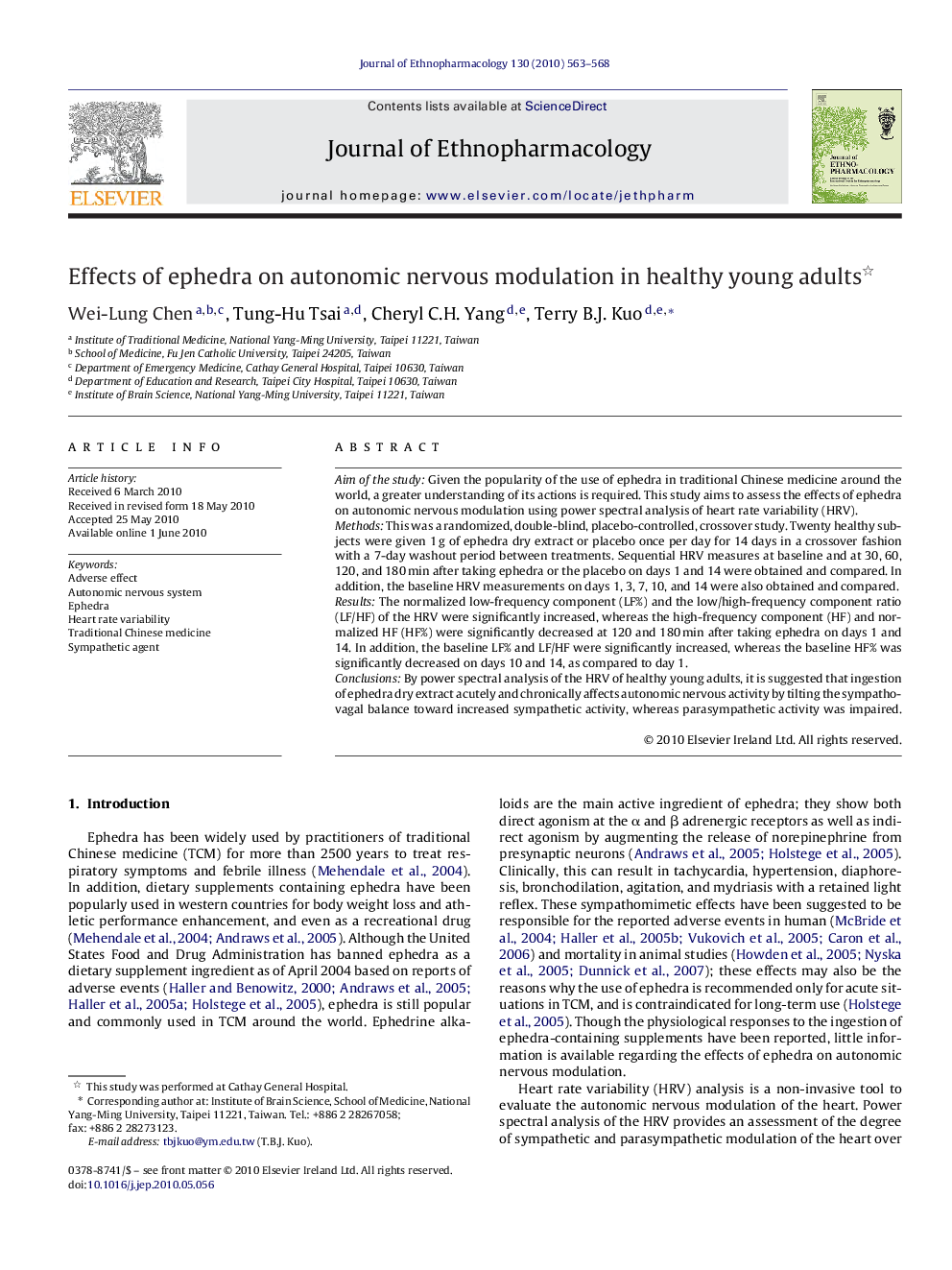| Article ID | Journal | Published Year | Pages | File Type |
|---|---|---|---|---|
| 2546109 | Journal of Ethnopharmacology | 2010 | 6 Pages |
Aim of the studyGiven the popularity of the use of ephedra in traditional Chinese medicine around the world, a greater understanding of its actions is required. This study aims to assess the effects of ephedra on autonomic nervous modulation using power spectral analysis of heart rate variability (HRV).MethodsThis was a randomized, double-blind, placebo-controlled, crossover study. Twenty healthy subjects were given 1 g of ephedra dry extract or placebo once per day for 14 days in a crossover fashion with a 7-day washout period between treatments. Sequential HRV measures at baseline and at 30, 60, 120, and 180 min after taking ephedra or the placebo on days 1 and 14 were obtained and compared. In addition, the baseline HRV measurements on days 1, 3, 7, 10, and 14 were also obtained and compared.ResultsThe normalized low-frequency component (LF%) and the low/high-frequency component ratio (LF/HF) of the HRV were significantly increased, whereas the high-frequency component (HF) and normalized HF (HF%) were significantly decreased at 120 and 180 min after taking ephedra on days 1 and 14. In addition, the baseline LF% and LF/HF were significantly increased, whereas the baseline HF% was significantly decreased on days 10 and 14, as compared to day 1.ConclusionsBy power spectral analysis of the HRV of healthy young adults, it is suggested that ingestion of ephedra dry extract acutely and chronically affects autonomic nervous activity by tilting the sympathovagal balance toward increased sympathetic activity, whereas parasympathetic activity was impaired.
Graphical abstractEphedra is popularly used in traditional Chinese medicine. The present results suggest that ingestion of ephedra dry extract is able to acutely and chronically tilt the sympathovagal balance toward increased sympathetic activity, whereas parasympathetic activity is impaired.Figure optionsDownload full-size imageDownload as PowerPoint slide
